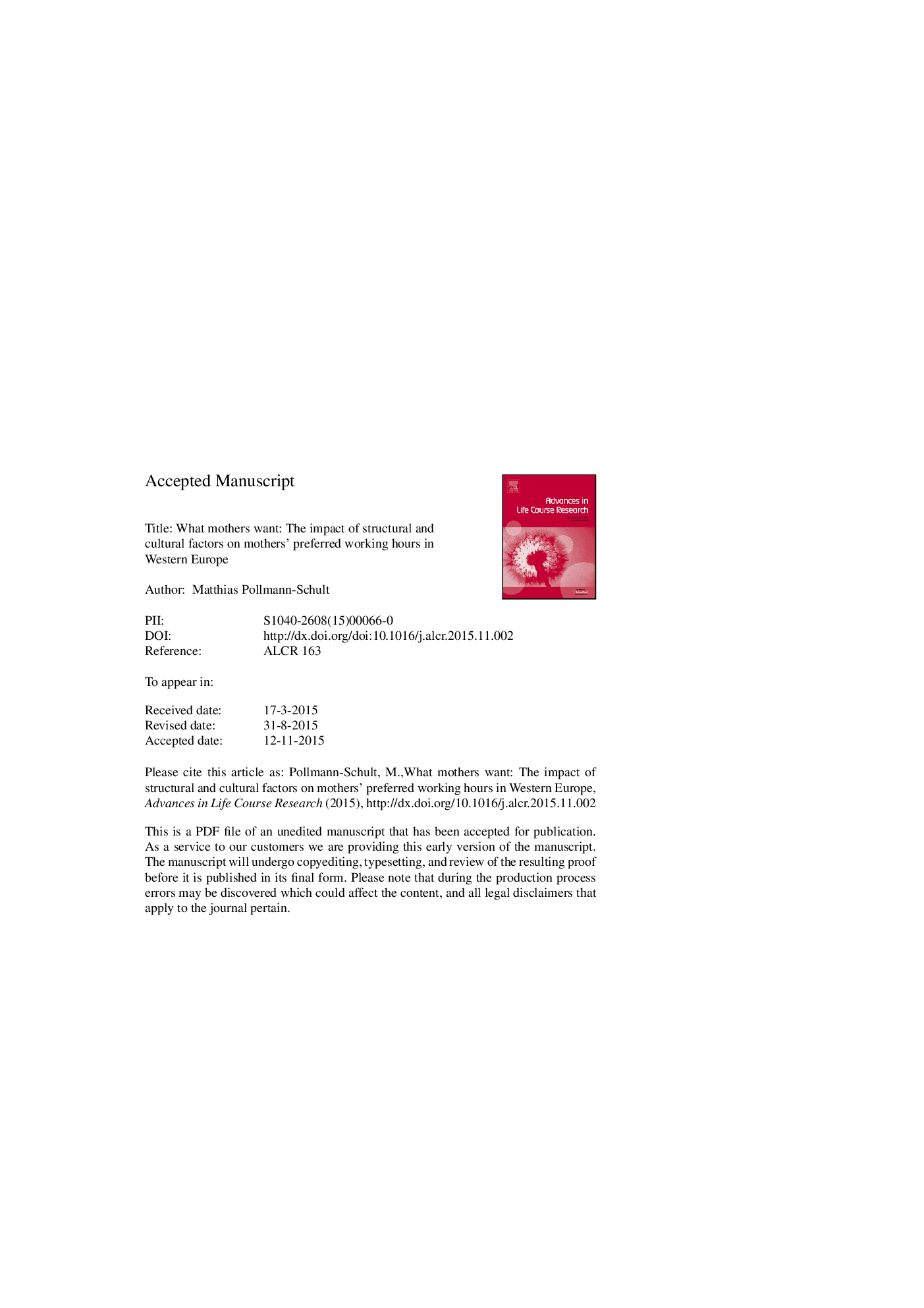| Article ID | Journal | Published Year | Pages | File Type |
|---|---|---|---|---|
| 6784822 | Advances in Life Course Research | 2016 | 31 Pages |
Abstract
This study investigates how social policies, gender norms, and the national working time regime shape mothers' preferred working hours. Using data from the European Social Survey (ESS) for 15 countries across Western Europe, the study reveals that generous public child care and cultural support for gender equality are associated with smaller gaps in the preferred working hours between mothers and childless women. High levels of financial support for families, in contrast, predict larger gaps in preferred working hours. The analysis also indicates that a low prevalence of non-standard work and high levels of work-time flexibility reduce the differences in preferred employment hours between mothers and non-mothers. Individual characteristics such as education, gender ideology, and the partners' socioeconomic status greatly impact women's preferred employment hours; however, they do not modify the effect of motherhood. This study concludes that the impact of parenthood on women's employment hours is highly contingent upon various institutional and cultural factors.
Related Topics
Physical Sciences and Engineering
Mathematics
Statistics and Probability
Authors
Matthias Pollmann-Schult,
